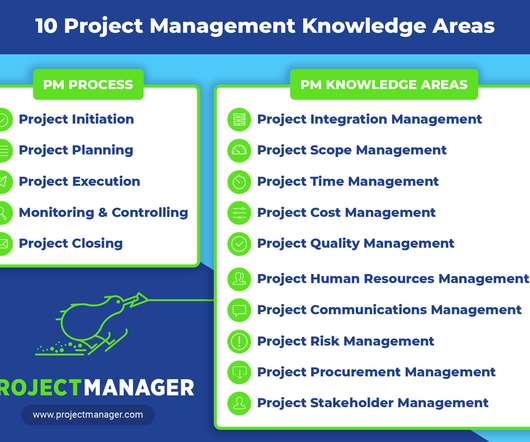The 10 Project Management Knowledge Areas (PMBOK)
ProjectManager.com
NOVEMBER 27, 2019
PMI has divided the large field of project management into 10 more digestible parts, which it calls the 10 project management knowledge areas in its A Guide to the Project Management Body of Knowledge (PMBOK). These are the chronological phases that every project goes through. Project Cost Management.














Let's personalize your content